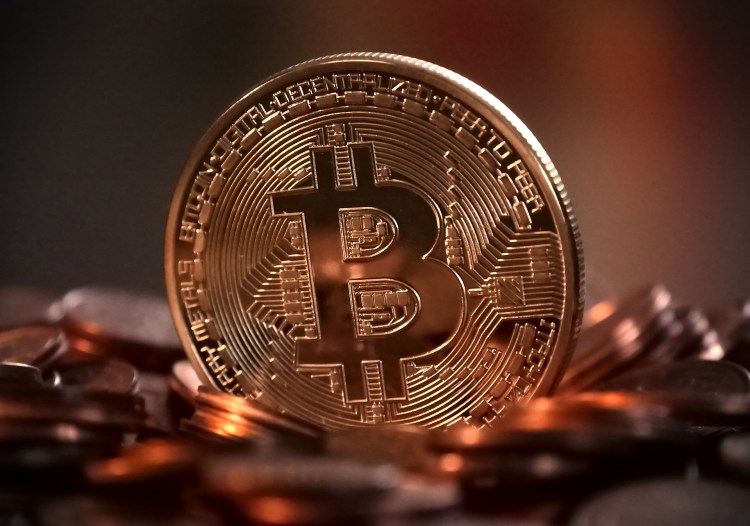Bitcoin is revolutionizing the online gambling world by offering faster transactions, lower fees, and greater privacy. As digital currencies become more integrated into casinos, players can enjoy instant deposits and withdrawals without dealing with traditional banking delays.
What is Bitcoin

The rise of bitcoin and how it’s transforming online gambling
Guest post © 2017 Great Bridge Links, updated in 2024.
What Is Bitcoin?
Bitcoin is a digital currency, also known as a cryptocurrency, that operates without a central authority or banks. It was introduced in 2009 by an anonymous person or group of people using the pseudonym Satoshi Nakamoto. Bitcoin enables peer-to-peer transactions between users directly, through the use of cryptography, across a decentralized network. This means that transactions are made with no intermediary, and they are recorded on a public ledger called the blockchain. Bitcoin can be exchanged for goods, services, and other currencies, both digital and traditional. Its creation and transfer are based on open-source cryptographic protocols, and it is limited in quantity, with a total of 21 million bitcoins ever to be created.
Both bitcoin and online gambling are becoming increasingly popular. This is no coincidence – it is rapidly becoming a match made in heaven as the two industries enjoy a mutually beneficial relationship. Online gambling, which includes poker, casinos, slots, sports betting, and other gaming activities done over the internet, has also seen significant growth in recent years. This increase in popularity is attributed to technological advancements, easy access through the internet, and the convenience of being able to gamble from anywhere at any time with just a phone. Both industries have capitalized on the digital revolution, making them more accessible and appealing to a global audience.
Bitcoin and online gambling have developed a symbiotic relationship, largely due to the cryptocurrency’s ability to offer anonymity, security, and fast transactions. Many online gambling platforms have embraced Bitcoin as a payment method, attracting users who seek privacy and wish to avoid traditional banking systems and regulations. The decentralized nature of Bitcoin ensures that transactions are transparent on the blockchain, yet the identities of the parties involved are protected. This has made Bitcoin especially appealing for online gambling, where users may prefer confidentiality regarding their activities. Additionally, Bitcoin’s ability to facilitate instant transactions without high processing fees is beneficial for both online casinos and gamblers, enhancing the efficiency of depositing and withdrawing funds.
A consensus network that allows a new payment system and a completely digital currency is essentially cash for the internet.
This week (2017), bitcoin soared above the $1,700 mark as market cap added a total of $1 billion in just one day. Bitcoin has been performing remarkably well in recent weeks and over one month, the price has increased by almost half at 43%.
Over one year, the bitcoin market has grown exponentially from around $7.16 billion in May 2016 to $27.9 billion today. The only way for bitcoin is up and it doesn’t look like that’s going to change any time soon.
That said, many popular gambling sites are yet to embrace bitcoin as a payment method. This is unsurprising given that only last year Bitcoin was reported as an ‘inescapable failure’. However, things have turned around recently and it seems the increasing popularity of online casinos may be partly responsible.
2024 Update
As of August 2024, Bitcoin’s price has seen significant fluctuations but remains strong. Currently, Bitcoin is trading around $59,000, with recent highs reaching over $73,700 earlier this year. The market cap stands at approximately $1.17 trillion, and the circulating supply is about 19.75 million BTC out of a maximum 21 million. The latest surge in price was influenced by key events such as the approval of Bitcoin spot ETFs by the SEC and the Bitcoin halving in April 2024, which typically drives bullish momentum in the market ( Changelly, CoinDesk ).
Compared to its 2017 price of $1,700, Bitcoin’s growth has been remarkable, showing the asset’s continued acceptance and resilience despite occasional downturns. Looking forward, analysts have mixed predictions, with some projecting prices could peak between $85,000 to $170,000 in the near term, while others foresee potential challenges due to regulatory and environmental concerns.
Advantages for online casino gamers
Bitcoin offers several advantages for online casino players, particularly in terms of speed, cost efficiency, and privacy:
- Instant Transactions: Bitcoin transactions are processed much faster than traditional banking methods. Deposits and withdrawals using Bitcoin are often near-instantaneous, allowing players to access their funds quickly without the usual delays associated with banks or payment processors. This eliminates the need to wait for bank approvals or processing times that can take days, significantly enhancing the gaming experience by providing immediate access to winnings.
- Lower Transaction Fees: Traditional payment methods like credit cards or bank transfers often come with hefty fees, including charges for international transactions. Bitcoin transactions generally incur lower fees, especially when compared to traditional banking systems that involve multiple intermediaries. This cost-effectiveness is particularly beneficial for frequent players who would otherwise accumulate significant fees over time.
- Privacy and Anonymity: What’s more, because it’s a cryptocurrency, it allows users to make deposits anonymously and it’s not monitored by any bank institution or government authority. Unlike credit card payments, which require personal information, Bitcoin transactions are pseudonymous, meaning they do not directly link to the player’s identity. This is attractive to players who prioritize privacy and wish to keep their gambling activities separate from their bank statements and personal records.
- Global Accessibility: Bitcoin’s decentralized nature allows it to be used worldwide without the need for currency conversion or dealing with country-specific banking regulations. This accessibility is especially useful for players in regions where traditional banking options may be limited or heavily regulated, enabling them to participate in online casinos without the constraints imposed by local financial systems.
- Security: Bitcoin transactions are secured through blockchain technology, which is highly resistant to tampering and fraud. This level of security helps protect players’ funds and personal information, making Bitcoin a reliable option for online gambling. The use of blockchain also means that all transactions are transparent and can be verified independently, adding an extra layer of trust between the casino and the player.
These advantages make Bitcoin a convenient and efficient payment method for online casino players, enhancing the overall gaming experience by saving time, reducing costs, and maintaining privacy
Getting started
If you’re new to using Bitcoin for online slots, here’s a straightforward guide to get you started:
- Set Up a Bitcoin Wallet: First, you’ll need a digital wallet to store your Bitcoin. There are many types of wallets available, including software wallets (for desktop or mobile) and hardware wallets (physical devices). Choose one that suits your needs and security preferences.
- Purchase Bitcoin: You can buy Bitcoin through various platforms, such as cryptocurrency exchanges, Bitcoin ATMs, or peer-to-peer trading sites. You’ll need to create an account, verify your identity (on most platforms), and then use fiat currency (like USD, EUR, etc.) to buy Bitcoin. Once purchased, the Bitcoin will be deposited into your digital wallet. Bitcoin’s How to Buy Bitcoin is a good place to get information.
- Choose a Bitcoin-Friendly Online Casino: Not all online casinos accept Bitcoin, so you’ll need to find one that does. Look for reputable online casinos that offer slots and verify that they accept Bitcoin as a payment method. Checking for licenses, user reviews, and security measures can help ensure you choose a safe platform.
- Deposit Bitcoin into Your Casino Account: Once you’ve selected an online casino, create an account there. Then, navigate to the deposit page, select Bitcoin as your deposit method, and follow the instructions. Typically, you’ll be given a unique address to send your Bitcoin to from your wallet. Confirm the transaction, and the funds should appear in your casino account shortly, often within minutes.
- Play Online Slots: With your casino account funded, you’re ready to play. Browse the casino’s selection of slot games and choose one to play. You’ll be betting with the Bitcoin you deposited, which may be converted into a fiat currency equivalent or casino credits for gameplay.
- Withdraw Winnings: If you win and wish to cash out, you can withdraw your winnings back to your Bitcoin wallet. Go to the casino’s withdrawal page, select Bitcoin as the withdrawal method, and enter the amount and your wallet address. After the casino processes your withdrawal, the winnings will be transferred to your wallet.
A few tips for beginners:
- Understand Bitcoin’s Volatility: The value of Bitcoin can fluctuate significantly. Be aware of this when buying Bitcoin and playing online slots.
- Use Reputable Sites: Only buy Bitcoin from reputable exchanges and play at trustworthy online casinos to avoid scams.
- Consider Security: Use strong passwords for your wallet and casino accounts, and consider using two-factor authentication for additional security.
- Know the Regulations: Be aware of the legalities of online gambling with Bitcoin in your country or state, as regulations can vary.
Bitcoin Questions
Why is there a cap at 21 million bitcoins?
Bitcoin’s supply cap of 21 million was set by its creator, Satoshi Nakamoto, to introduce scarcity, similar to precious metals like gold. This limited supply is designed to make Bitcoin deflationary, meaning it should appreciate in value over time as demand increases and supply remains fixed.
The cap also helps control inflation. Unlike traditional currencies, which can be printed by governments and lead to inflation, Bitcoin’s fixed supply prevents the devaluation of the asset. This built-in scarcity is one of the reasons Bitcoin is often referred to as “digital gold.”
Another reason for the cap is to maintain the security of the network. The predictable and finite supply of Bitcoin creates a long-term incentive for miners to continue participating in the network. The halving events, which periodically reduce the block reward, are part of this design to gradually decrease the rate of new Bitcoin entering circulation until the cap is reached
Once the cap is reached and no new bitcoin will be mined will this reduce the environmental impact of Bitcoin?
When Bitcoin’s supply cap of 21 million is reached, the environmental impact of mining may not automatically decrease. The environmental footprint of Bitcoin largely comes from the energy-intensive Proof-of-Work (PoW) consensus mechanism used by miners, which requires vast amounts of computational power.
Even after the last Bitcoin is mined, miners will continue to validate transactions and secure the network, still consuming significant energy. However, the economic incentive for miners will shift solely to transaction fees, which could lead to changes in mining operations, potentially making some high-energy mining less profitable.
There is ongoing discussion in the Bitcoin community about transitioning to more energy-efficient methods, such as Proof-of-Stake (PoS), but this would require major changes to Bitcoin’s core protocol. In the meantime, efforts are being made to reduce the environmental impact by using renewable energy sources and more efficient mining technology.








